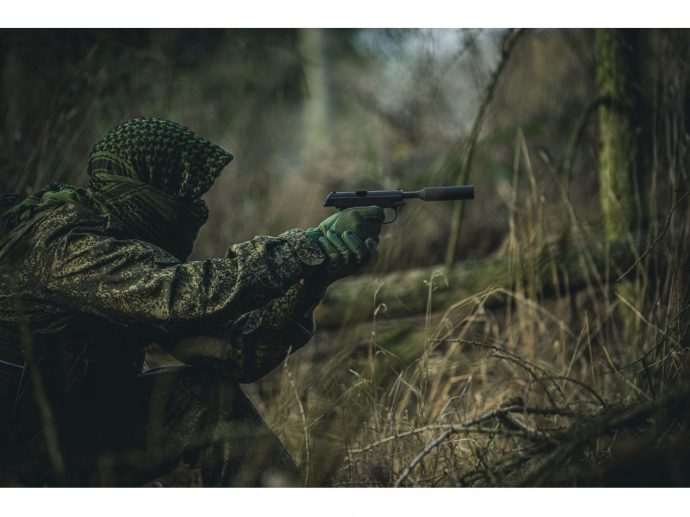Categories more
- Adventures (14)
- Arts / Collectables (13)
- Automotive (32)
- Aviation (10)
- Bath, Body, & Health (68)
- Children (5)
- Cigars / Spirits (21)
- Cuisine (15)
- Design/Architecture (16)
- Electronics (12)
- Entertainment (4)
- Event Planning (4)
- Fashion (41)
- Finance (8)
- Gifts / Misc (6)
- Home Decor (43)
- Jewelry (37)
- Pets (2)
- Philanthropy (0)
- Real Estate (11)
- Services (21)
- Sports / Golf (12)
- Vacation / Travel (52)
- Watches / Pens (13)
- Wines / Vines (21)
- Yachting / Boating (14)
The Impact of Handgun Scopes on Accuracy and Performance
Published
04/02/2024In the realm of shooting sports and hunting, accuracy is paramount. Whether for competitive shooting, hunting, or personal defense, achieving precision is a shared goal among enthusiasts and professionals alike. One technological advancement that has significantly influenced accuracy and overall performance is the incorporation of handgun scopes.
These optical enhancements are not just accessories but game-changers in how shooters engage with targets at various distances. In this detailed exploration, we delve into the impact of handgun scopes on shooting accuracy and performance, providing insights into why these tools are becoming indispensable for marksmen around the globe.
Enhancing accuracy with handgun scopes
Designed to provide magnification and a clearer view of distant targets, is pivotal in enhancing shooting accuracy. These scopes allow shooters to align their aim with greater precision, thanks to features like reticle patterns and adjustable magnification levels. By offering a magnified view of the target, shooters can make minute adjustments to their aim, significantly increasing their chances of hitting the target accurately. This precision is particularly beneficial in hunting and competitive shooting, where even a slight misalignment can mean the difference between success and failure.
The impact on shooting performance
Beyond accuracy, the integration of handgun scopes into a shooter's arsenal can profoundly impact overall performance. First, scopes help shooters identify and engage targets more quickly, a critical factor in both hunting and competitive scenarios. The enhanced sight picture provided by a scope aids in faster target acquisition, reducing the time between drawing the handgun and firing the shot.
Secondly, the use of scopes can contribute to better shooting form and technique. When using a scope, shooters are more likely to adopt a stable shooting stance and proper grip to align the sight, thereby promoting consistency in shooting practices. This consistency is crucial for developing muscle memory and improving long-term shooting performance.
Considerations for selecting handgun scopes
When selecting handgun scopes, shooters must consider several factors to ensure they choose the right scope for their specific needs. Magnification power is a primary consideration; while higher magnification offers a closer view of distant targets, it can also make the scope harder to stabilize and reduce the field of view. Therefore, finding a balance that suits the intended use of the handgun is essential.
Durability and resistance to recoil are other critical factors. Handgun scopes must withstand the significant recoil produced by firing, without losing zero or suffering damage. Opting for scopes specifically designed for use on handguns, which feature robust construction and recoil resistance, is advisable.
Moreover, the size and weight of the scope should complement the handgun, ensuring that the added bulk does not hinder the shooter's ability to handle and aim the firearm effectively.
The role of handgun scopes in personal defense
While handgun scopes are predominantly associated with hunting and competitive shooting, they also have a place in personal defense, albeit in specific scenarios. For home defense or in situations where longer-distance accuracy is required, a handgun equipped with a scope can provide the precision needed to neutralize threats effectively. However, it's important to consider the practicality and ease of use under stress, as personal defense situations often require quick reflexes and decision-making.
Technological advances in handgun scopes
The evolution of handgun scopes over the years has seen significant technological advancements, making them more versatile and user-friendly. Features such as illuminated reticles, which enhance visibility in low-light conditions, and ballistic compensating reticles, which aid in adjusting for bullet drop over distance, are now common. These improvements have expanded the range of scenarios in which handgun scopes can be effectively used, further solidifying their role in improving shooting accuracy and performance.
Conclusion
The integration of handgun scopes into shooting practices represents a significant leap forward in the pursuit of accuracy and performance. By providing a magnified view of the target, facilitating faster target acquisition, and promoting better shooting form, these optical devices have become indispensable tools for marksmen. Whether for competitive shooting, hunting, or select personal defense scenarios, the benefits of using handgun scopes are clear.
Shooters looking to enhance their capabilities and achieve precision in their shots will find that investing in a quality handgun scope is a step toward achieving their goals. As technology continues to advance, we can only expect these tools to become even more integral to the shooting sports landscape, offering improved features and greater versatility for enthusiasts at all levels.















